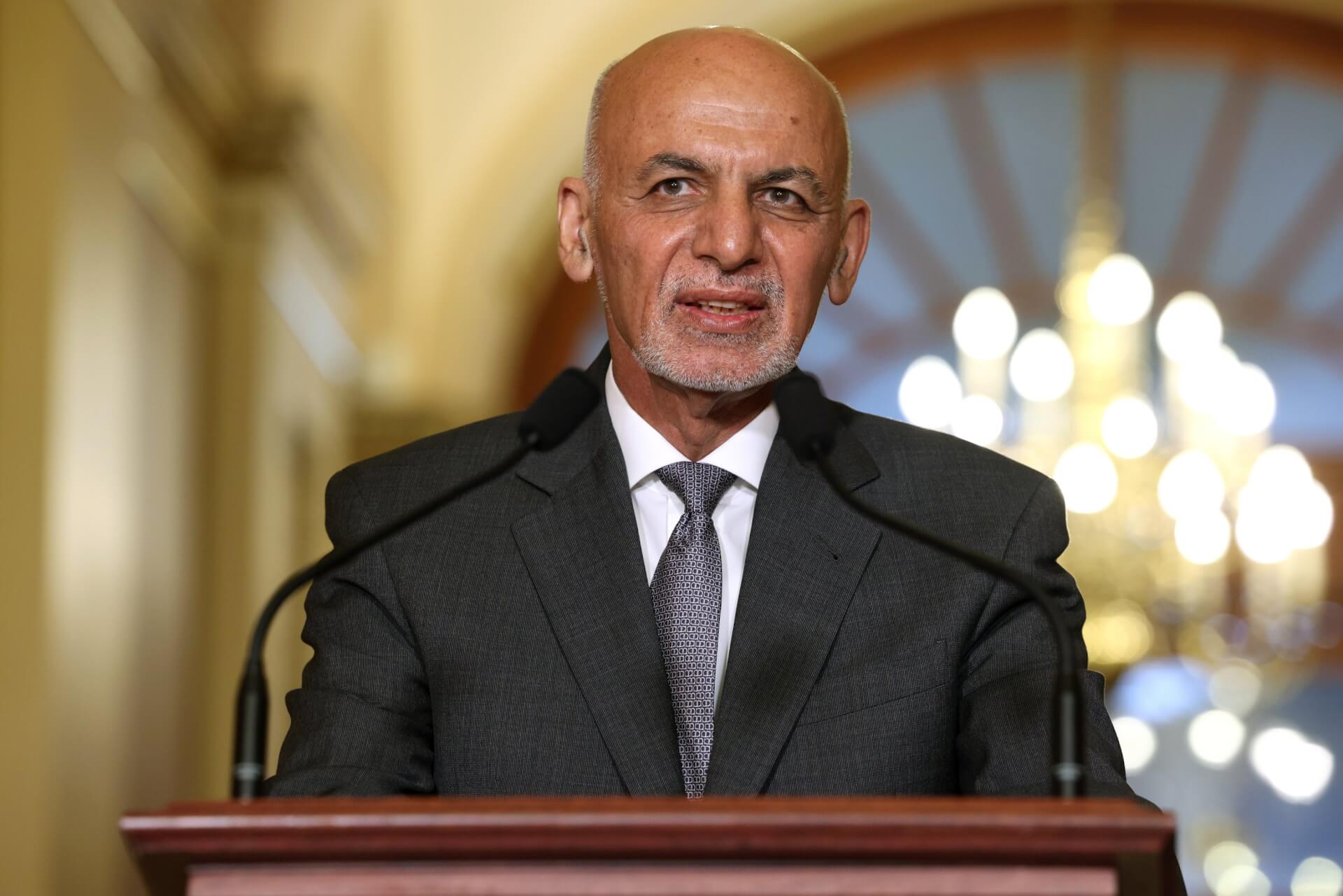Former Afghanistan President Ashraf Ghani on Thursday defended his decision to flee the country during the Taliban takeover in August, saying he wasn’t aware he was leaving until he took off.
Breaking his silence for the first time in four months in an interview with the BBC’s Radio 4 “Today” programme, Ghani said the day the Taliban took control of Kabul and the government, August 15, he had no clue that it would be his last day in the country. He said that the presidential palace’s security had fallen by afternoon on that day.
Not surprised that BBC provides a platform to Ashraf Ghani to tell lies and more lies to give himself a clean chit!
— Ashok Swain (@ashoswai) December 31, 2021
In the interview conducted by former British Chief of Defence Staff General Nick Carter, Ghani said, “If I take a stand, they will all be killed, and they were not capable of defending me.” Ghani added that an adviser gave him only minutes to abandon the city. He also said that his primary concern was to prevent brutal fighting in the capital and claimed that two rival Taliban factions were waiting to enter the city and wage a battle for control. “I had to sacrifice myself in order to save Kabul and to expose the situation for what it is: a violent coup, not a political agreement,” the former President stressed. Ghani said he had initially planned to board a helicopter on August 15 to the eastern city of Khost, unaware that the city had already fallen to the Taliban.
Ghani also denied having an agreement to ensure a peaceful takeover of the country, effectively disputing the testimonies of former Afghan and US officials. Furthermore, he blamed the US and veteran American diplomat Zalmay Khalilzad, who negotiated the 2020 Doha agreement with the Taliban, for the downfall of his government and Afghanistan. He also accused the US of excluding his government from negotiations with the Taliban.
Listening to former Afghan president Ghani & former U.S. envoy Khalilzad on R4 I’m struck by how easily and energetically these two men, key players in Afghanistan over last 6 months, deny any responsibility for current tragedy. They had power but it’s all someone else’s fault
— Emma Graham-Harrison (@_EmmaGH) December 30, 2021
He said, “I trusted in our international partnership instead of confronting continuously like my predecessor [Hamid Karzai].” The agreement ensured the final withdrawal of the US and North Atlantic Treaty Organization (NATO) troops from Afghanistan, effectively ending America’s longest war. Ghani said, “My life work has been destroyed. My values had been trampled on. And I have been made a scapegoat.”
Ghani was criticised by US President Joe Biden and other Western leaders for leaving the country, which is now under the control of the Taliban. They accused Ghani of abandoning Afghan citizens and taking millions of dollars in cash. However, he denied the claims, saying, “I would be delighted to have any kind of investigation, including taking a lie-detector test.” “What would I do with the money?” he asked rhetorically.
Earlier this month, former Afghan President Hamid Karzai told the Associated Press that Ghani’s sudden departure from Afghanistan had hampered the possibility for government negotiators, including himself, to reach an agreement with the Taliban, who had vowed to stay outside the city. Karzai also said that after discovering that Defence Minister Bismillah Khan, the interior minister, and the police chief had fled the country, he invited the Taliban into Kabul to protect citizens and ensure that the city didn’t fall into chaos.
Since fleeing the country, Ghani has been in the United Arab Emirates. In the interview, Ghani didn’t address the swift collapse of the presidential palace and the Afghan military in the weeks leading up to the Taliban’s capture of Kabul.
Afghanistan is currently in the midst of a spiralling economic and humanitarian crisis. According to several estimates by the UN bodies, millions of Afghans are prospectively facing hunger during the winter. The United Nations’ World Food Programme said that 22.8 million out of the 38 million Afghans currently face acute food shortages. It also reported an increase in the rate of malnutrition in the country. Since the Taliban’s takeover, a large portion of foreign aid directed to Afghanistan has been obstructed, worsening the economic crisis, which was already deepening due to the rising rate of unemployment, the COVID-19 pandemic, and limited banking activities.

